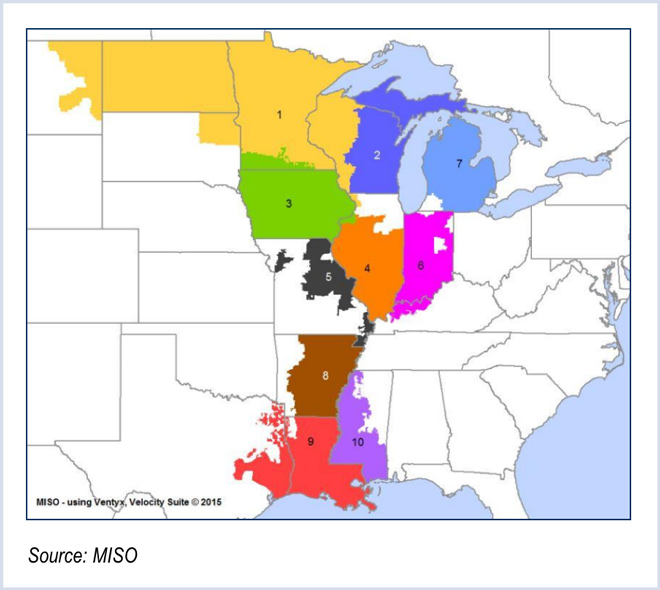By Chris O’Malley
The Federal Energy Regulatory Commission has conditionally granted a request by MISO to create a 10th local resource zone, in Mississippi (ER15-1771).
The state currently is part of MISO Zone 9, which also consists of Louisiana and part of Texas.
MISO’s Tariff requires that the RTO must develop new zones by Sept. 1 of each year if necessary to ensure adequate planning resources to meet demand and loss-of-load-expectation requirements.
MISO said its analysis showed the need for a separate, stand-alone zone for Mississippi.
MISO will use the zone to allocate costs of new market efficiency projects. It will not affect the cost allocation transition period for the MISO South region, the order stated.
The RTO defines zones by several criteria, including state and local balancing authority boundaries and the strength of transmission interconnections between BAs.
FERC said MISO’s re-evaluation was consistent with such criteria and that no parties opposed creating the new zone. “MISO states that with the new Mississippi zone, MISO will continue to appropriately balance the granularity in the calculation of benefits from market efficiency projects and the uncertainty of these calculations at a more granular level,” FERC wrote.
New Zone Rests on Resolving Another Dispute
But FERC said its approval would be conditional on resolution of a pending case involving proposed revisions to MISO’s resource adequacy construct. The RTO filed the changes to comply with FERC orders addressing concerns about deliverability of capacity resources throughout MISO’s footprint (ER11-4081).
MISO won commission approval to impose a zonal deliverability charge on load-serving entities that meet their resource adequacy requirements through resources located outside of the zone where their loads are located.
MISO proposed two types of hedges against deliverability charges, including a “grandmother agreement” for market participants that secured firm transmission rights prior to July 20, 2011.
But FERC ordered MISO to terminate the grandmother agreements after a two-year period, saying it would unreasonably allow LSEs to avoid using deliverability as part of their resource planning analysis — negating the purpose and reliability benefits of the proposed locational market mechanisms.
Parts of that 2011 FERC order are still being slugged out at the commission. Among those trying to convince FERC to rehear the elimination of the grandmother clause is Great River Energy, which said it has been exposed to significant pancaked costs for capacity since the two-year phase out of the waiver.
Dynegy Case Indicative of Broader Zone Problem?
In a filing last month, Great River referred to a dispute involving zonal boundaries: the complaint filed in May by Public Citizen and the Illinois Attorney General about the nine-fold increase in Zone 4 prices in MISO’s Planning Resource Auction last April (EL15-70).
Great River said that case illustrates “that commission action is needed to address problems in the implementation” of zones.
Great River said the Zone 4 complaints also demonstrate significant price separation that can occur between zones. “Some of this price separation could have been hedged from grandmother agreement treatment if firm transmission service existing from non-Zone 4 generation to Zone 4 load.”
In Great River’s case, it told FERC it is likely to incur even more capacity costs through the islanding of its load in Zone 3. Great River said MISO’s “improper” application of the zone criteria had the effect of islanding its load in southern Minnesota by carving it out of Zone 1, where all of its generation is located.



